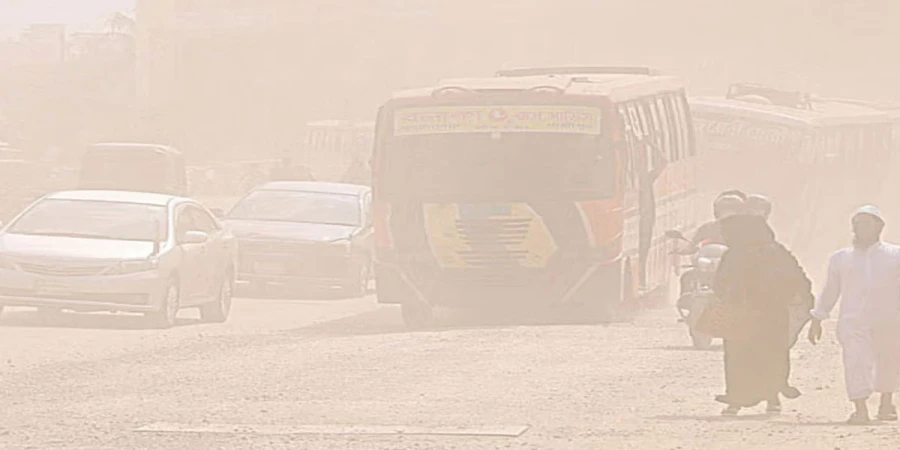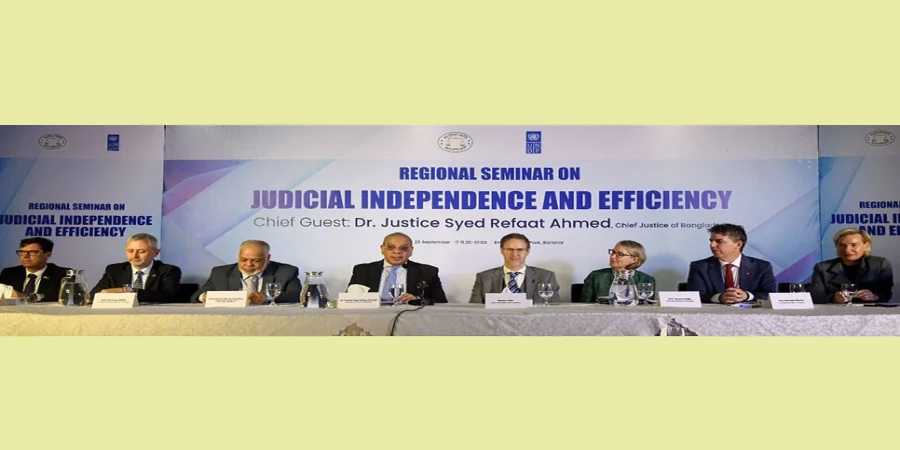
ছবি: -Collected Photo
The air quality in Dhaka continues to remain at an unhealthy level, raising concerns for residents, especially those with existing health conditions. According to data released by IQAir, a Swiss-based air quality monitoring organization, Dhaka’s Air Quality Index (AQI) was recorded at 107 at 9:30 a.m. on Saturday. This level is categorized as “unhealthy for sensitive groups.”
In the global ranking of polluted cities, Dhaka stood sixth on the list. Topping the chart was Addis Ababa, Ethiopia, with an AQI of 160. New Delhi, India, occupied the second position with an identical AQI of 160. Other cities in the top five included Lahore in Pakistan (159), Kinshasa in the Democratic Republic of the Congo (158), and Jakarta, Indonesia (129).
Air quality is measured using the AQI, which categorizes the level of pollution and its potential health impact. According to international standards, an AQI score below 50 is considered “good” and indicates clean air. Readings between 51 and 100 are regarded as “moderate,” posing little risk to the general public.
When the AQI ranges from 101 to 150, the air is deemed “unhealthy for sensitive groups.” At this level, children, the elderly, and individuals with respiratory or cardiovascular conditions are advised to avoid prolonged outdoor activities. Levels between 151 and 200 are classified as “unhealthy” for the broader population, while readings of 201 to 300 fall into the “very unhealthy” category. An AQI above 300 is considered “hazardous” and poses serious health risks for all residents.
Public health experts warn that even at the “unhealthy for sensitive groups” stage, people should take precautionary measures. Sensitive individuals are advised to limit outdoor exertion, wear protective masks if necessary, and monitor health conditions closely. Authorities also recommend that residents keep indoor air clean by avoiding activities that worsen pollution, such as burning wood or trash.
The dangers of prolonged exposure to air pollution are well documented. A study published in the British Medical Journal (BMJ) in November 2023 revealed that fossil fuel-related air pollution alone contributes to 5.2 million deaths worldwide each year. Meanwhile, the World Health Organization (WHO) has reported that the combined effects of household and outdoor air pollution are responsible for approximately 6.7 million deaths annually.
In Dhaka, air pollution is a persistent challenge, worsened by rapid urbanization, unplanned construction, vehicular emissions, and industrial activities. Seasonal changes, such as the dry winter months, often lead to higher pollution levels, making the city one of the most polluted in the world during certain periods of the year.
Environmental activists stress the need for stronger policy measures to combat air pollution. They recommend enforcing stricter regulations on vehicle emissions, promoting cleaner energy sources, managing construction dust, and expanding green spaces within the city. Without urgent intervention, experts fear that air quality will continue to deteriorate, posing a serious public health threat.
For now, residents of Dhaka are advised to remain cautious. The city’s AQI ranking highlights the broader global struggle against air pollution, reminding both policymakers and citizens of the urgent need to take action in protecting the environment and safeguarding health.
repoter





